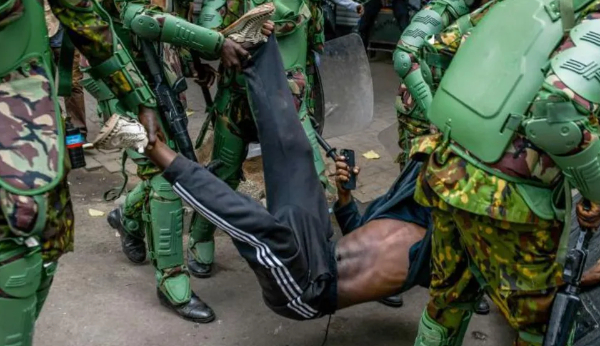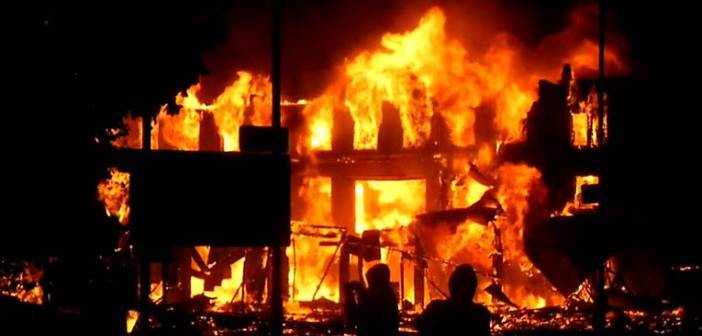Kenyan court suspends police ban on protests

A Kenyan court has suspended a move by the police to ban protests in the capital, Nairobi, and surrounding areas “until further notice”.
The police on Wednesday issued the order citing their leaderless nature that has made it difficult to enforce safety, adding the protests had been “infiltrated by criminals”.
It came after a month of anti-government protests in which scores of people have been killed.
More protests had been planned for Thursday in the city but failed to take off.
Nairobi city centre has been the heart of the youth-led protests, which have also taken place across the country.
The protests began against unpopular tax rises but after they were withdrawn have broadened out, to include demands for President William Ruto to resign.
Online posters had called for people to gather on Thursday at Uhuru Park in the city centre, before marching to State House, the president’s official residence.
But some of the activists who have helped mobilise the protests in the past distanced themselves from the call.
Police said had “no demonstrations will be permitted in the Nairobi Central Business District and its surroundings until further notice to ensure public safety”.
The high court later temporarily suspended the order pending the hearing of a suit filed by a civil rights organisation.
The ban has sparked outrage online, with some arguing that the police do not have such powers, as Kenyan law gives citizens the right to hold demonstrations.
There was a heavy police presence in the capital in anticipation of the protests.
But as the protests largely failed to take off, cautious businesses that had waited to see what would happen opened later in the day.
Acting head of police Douglas Kanja said in a statement that the decision was taken after receiving “credible intelligence that organised criminal groups are planning to take advantage of the ongoing protests”.
“Criminals have continued to infiltrate the protesting groups, resulting in a troubling trend of disorderly and destructive conduct,” it said.
It added that its decision had also been informed by “the lack of designated leadership in previous demonstrations” that had “made it difficult to enforce safety protocols”.
Since the protests began, the president has backed down and agreed to some of the protesters’ demands, including dropping the contentious finance bill and firing his entire cabinet.
The head of the police also resigned.
But people have been calling for more action against bad governance and corruption and for police to account for the deaths of dozens of demonstrators at recent rallies.
At least 50 protesters have been killed and 413 injured since the protests started on 18 June, according to the state-funded Kenya National Commission on Human Rights.
Source: bbc.com





